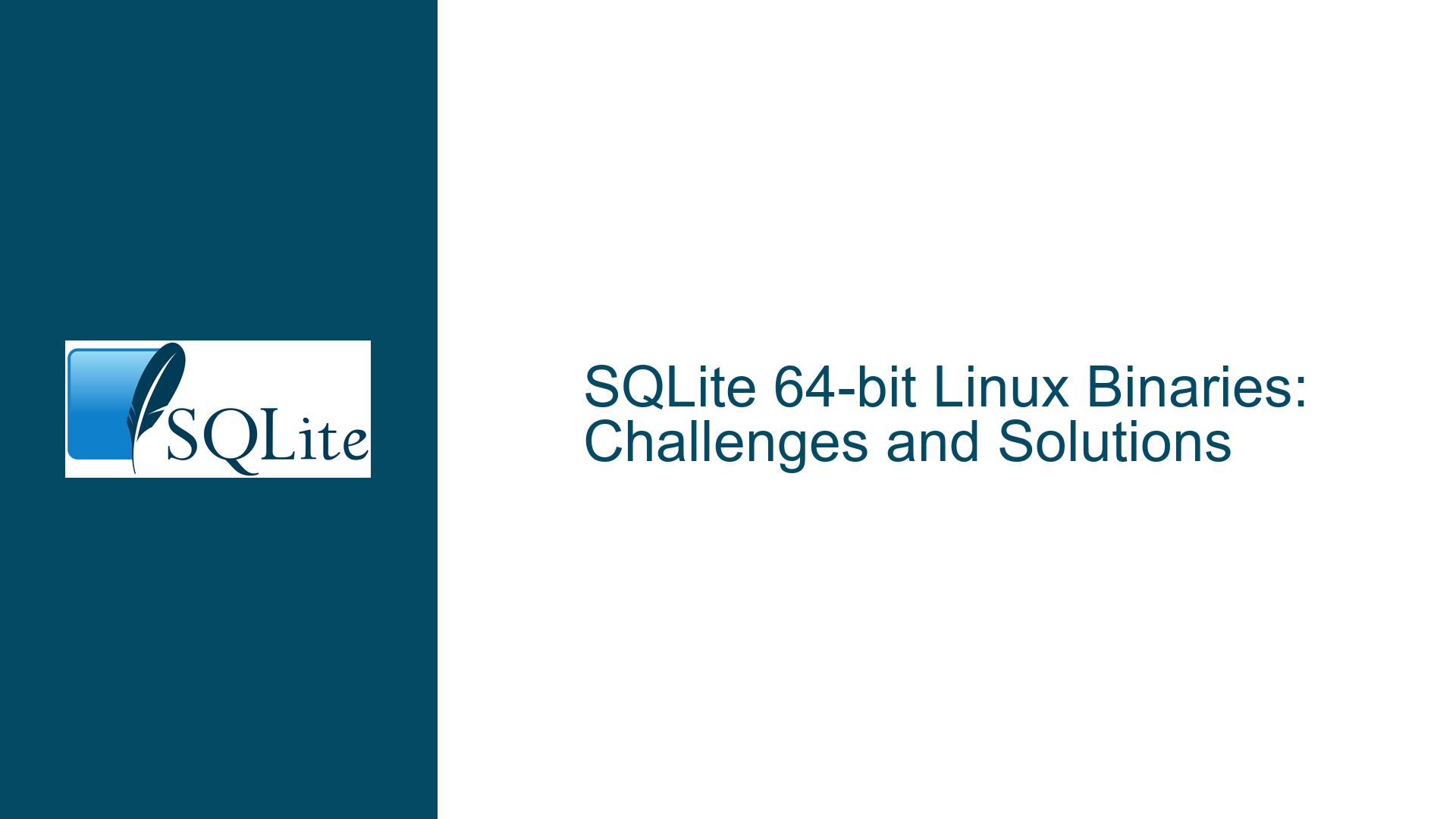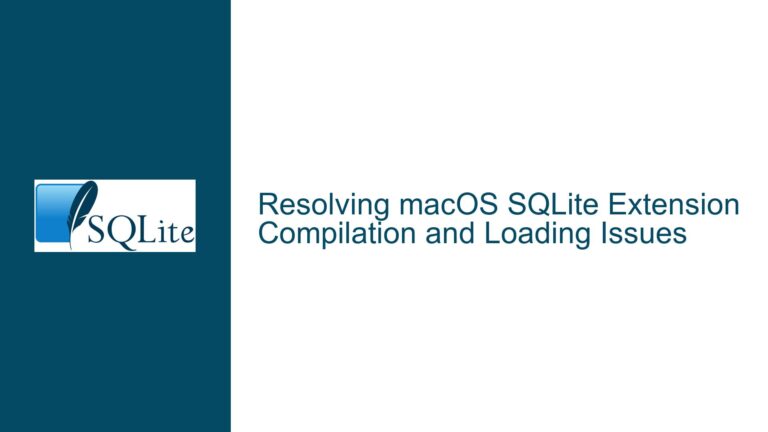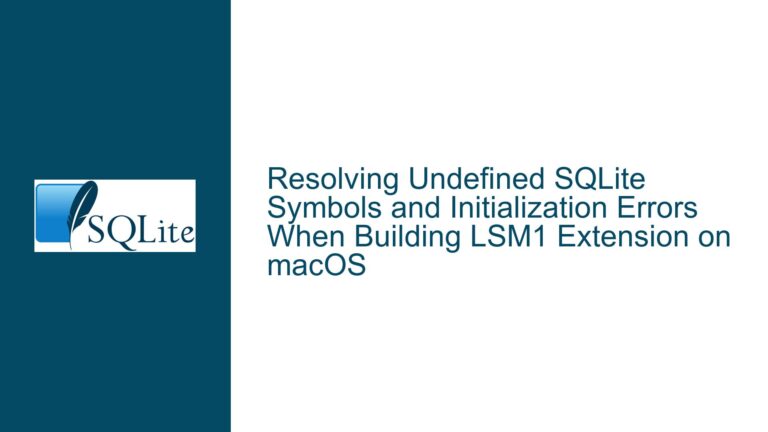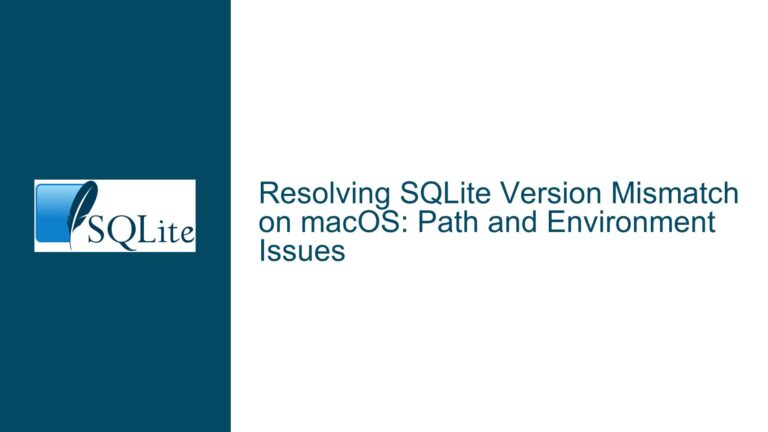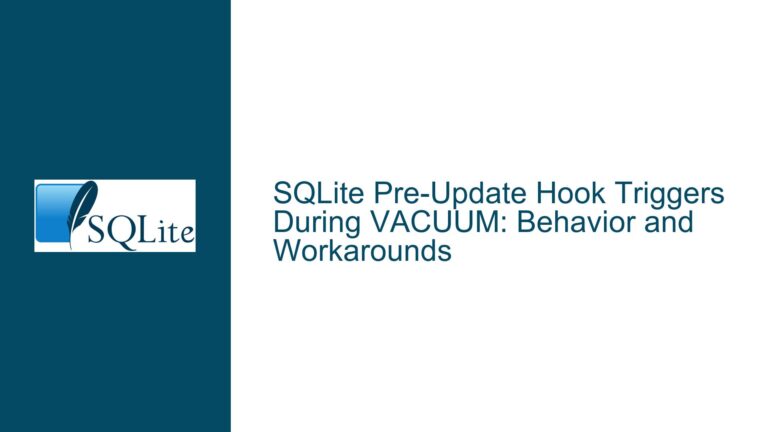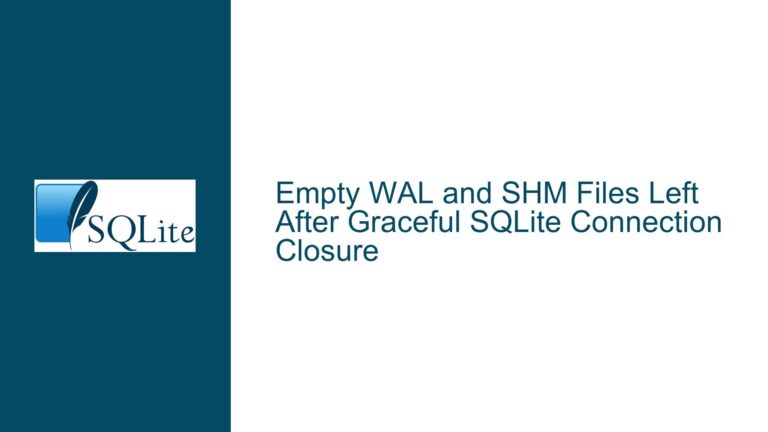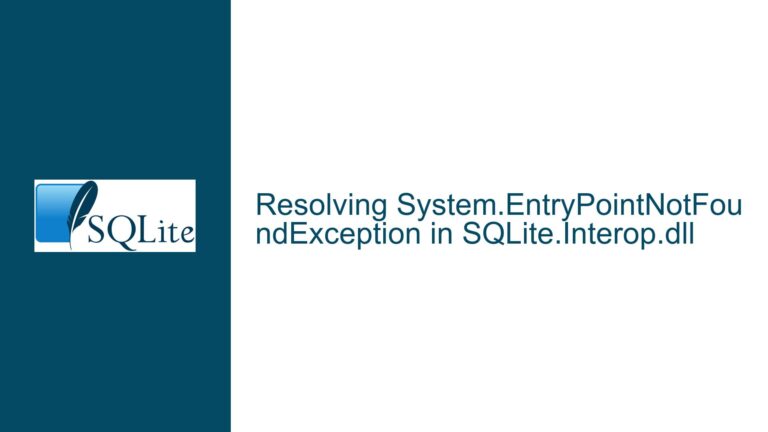SQLite 64-bit Linux Binaries: Challenges and Solutions
Lack of Official 64-bit Precompiled SQLite Binaries for Linux
The absence of official 64-bit precompiled SQLite binaries for Linux has been a recurring issue for users operating in environments where only 64-bit programs can run. This limitation is particularly problematic in scenarios where users lack root access, preventing them from installing 32-bit compatibility libraries or using the operating system’s package manager to install SQLite. The discussion highlights the challenges faced by users who need to deploy SQLite in such constrained environments and explores various workarounds and solutions.
The core of the issue lies in the fact that the official SQLite website only provides 32-bit precompiled binaries for Linux. While this might have been sufficient in the past, the majority of modern servers and virtual private servers (VPS) have transitioned to 64-bit architectures. This shift has rendered the 32-bit binaries incompatible with many contemporary systems, especially those that do not include 32-bit glibc or other necessary 32-bit libraries. As a result, users are forced to either compile SQLite from source or seek alternative solutions, which can be time-consuming and technically demanding.
The problem is exacerbated in environments where resources are limited, such as VPS instances with restricted storage and memory. In such cases, installing 32-bit compatibility libraries is often impractical, if not impossible. This has led to a growing demand for official 64-bit precompiled SQLite binaries that can be easily deployed without the need for additional dependencies or extensive configuration.
Constraints in Environments Without Root Access or 32-bit Libraries
The primary constraint faced by users in this scenario is the lack of root access, which prevents them from installing 32-bit compatibility libraries or using the operating system’s package manager to install SQLite. This limitation is particularly relevant in shared hosting environments, VPS instances, and other restricted systems where users do not have administrative privileges. Without root access, users cannot install the necessary 32-bit libraries required to run the 32-bit SQLite binaries provided on the official website.
Another significant constraint is the absence of 32-bit glibc or other 32-bit libraries on many modern 64-bit systems. As the industry has moved towards 64-bit architectures, many system administrators have opted to exclude 32-bit libraries to save space and simplify maintenance. This decision, while beneficial from a system management perspective, creates a compatibility issue for software that only provides 32-bit binaries, such as SQLite.
In addition to these constraints, users often face resource limitations in their environments. For example, VPS instances typically have limited storage and memory, making it impractical to install large 32-bit compatibility libraries. This further complicates the deployment of SQLite, as users must find alternative methods to run the database engine without exceeding their resource limits.
Compiling SQLite from Source and Alternative Solutions
Given the constraints outlined above, users have explored various methods to deploy SQLite in 64-bit environments without root access or 32-bit libraries. One of the most common approaches is to compile SQLite from source code. This method allows users to generate a 64-bit binary that is tailored to their specific environment. The process involves downloading the SQLite source code, configuring the build environment, and compiling the code using a 64-bit toolchain.
The steps to compile SQLite from source are relatively straightforward. Users can download the source code from the official SQLite website, extract the tarball, and configure the build using the ./configure script with the --prefix option set to a directory within their home directory. This ensures that the compiled binary and associated files are installed in a location where the user has write permissions, bypassing the need for root access. Once the configuration is complete, users can run make and make install to compile and install SQLite.
While compiling from source is a viable solution, it requires a certain level of technical expertise and can be time-consuming. Additionally, users must ensure that their environment has the necessary build tools and dependencies installed. For those who prefer a more streamlined approach, alternative solutions have been proposed.
One such alternative is the use of Docker containers to compile and distribute 64-bit SQLite binaries. Docker provides a lightweight, portable environment that can be used to compile software without affecting the host system. By creating a Docker container that includes the necessary build tools and dependencies, users can generate a 64-bit SQLite binary that is statically linked and free from external dependencies. This approach not only simplifies the compilation process but also ensures that the resulting binary can be run on any Linux-based system without the need for additional libraries.
Another alternative is the use of Fossil, the version control system developed by the SQLite team. Fossil includes a built-in SQLite shell that can be accessed using the fossil sql --no-repository command. While this is not a direct replacement for the standalone SQLite binary, it provides a functional SQLite environment that can be used in 64-bit systems. Fossil binaries are available in 64-bit versions, making them a viable option for users who need a quick and easy solution.
In conclusion, the lack of official 64-bit precompiled SQLite binaries for Linux presents a significant challenge for users operating in constrained environments. However, by compiling SQLite from source, using Docker containers, or leveraging Fossil, users can overcome these challenges and deploy SQLite in 64-bit systems without root access or 32-bit libraries. These solutions provide flexibility and ensure that users can continue to use SQLite in a wide range of environments, regardless of the limitations imposed by their systems.
